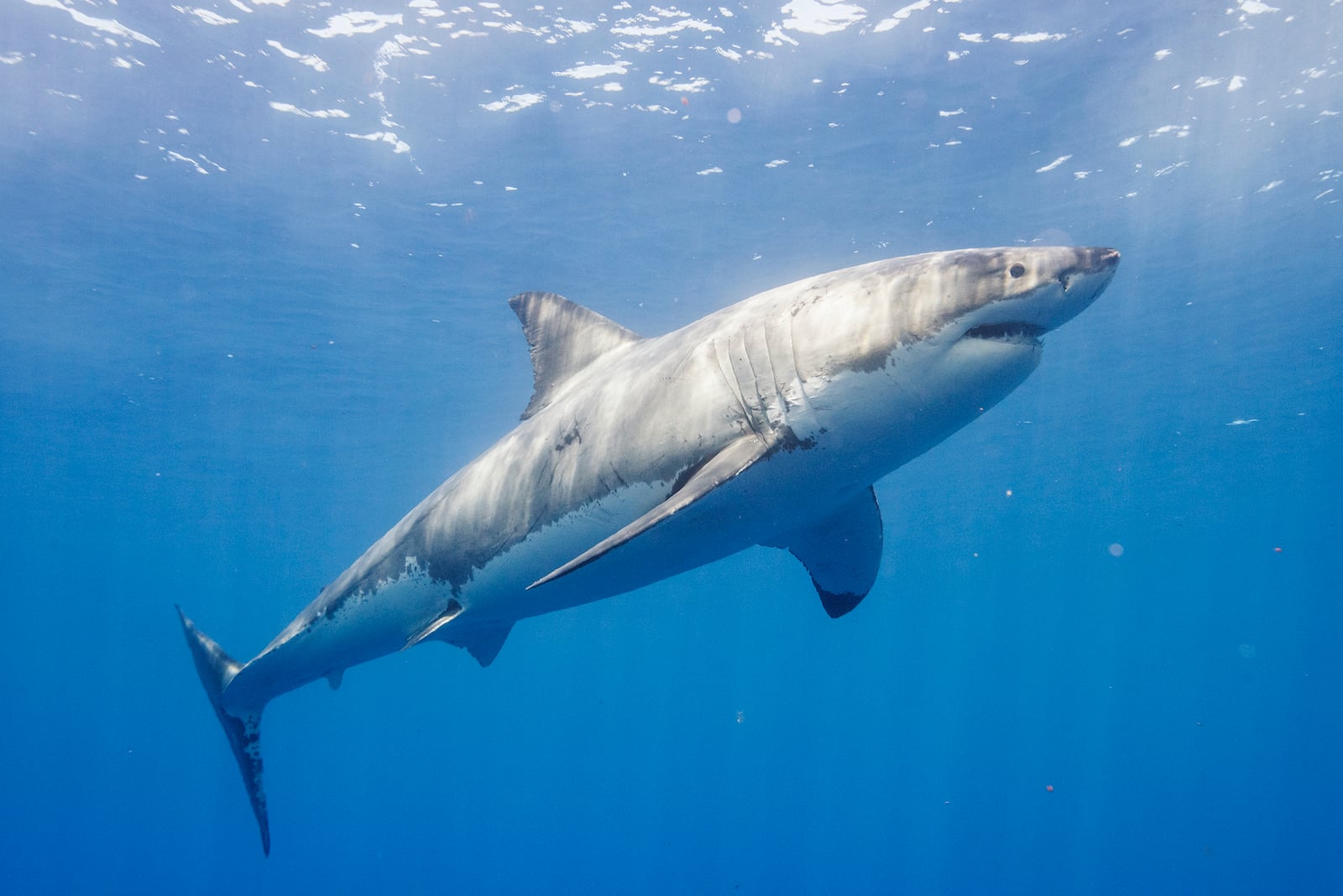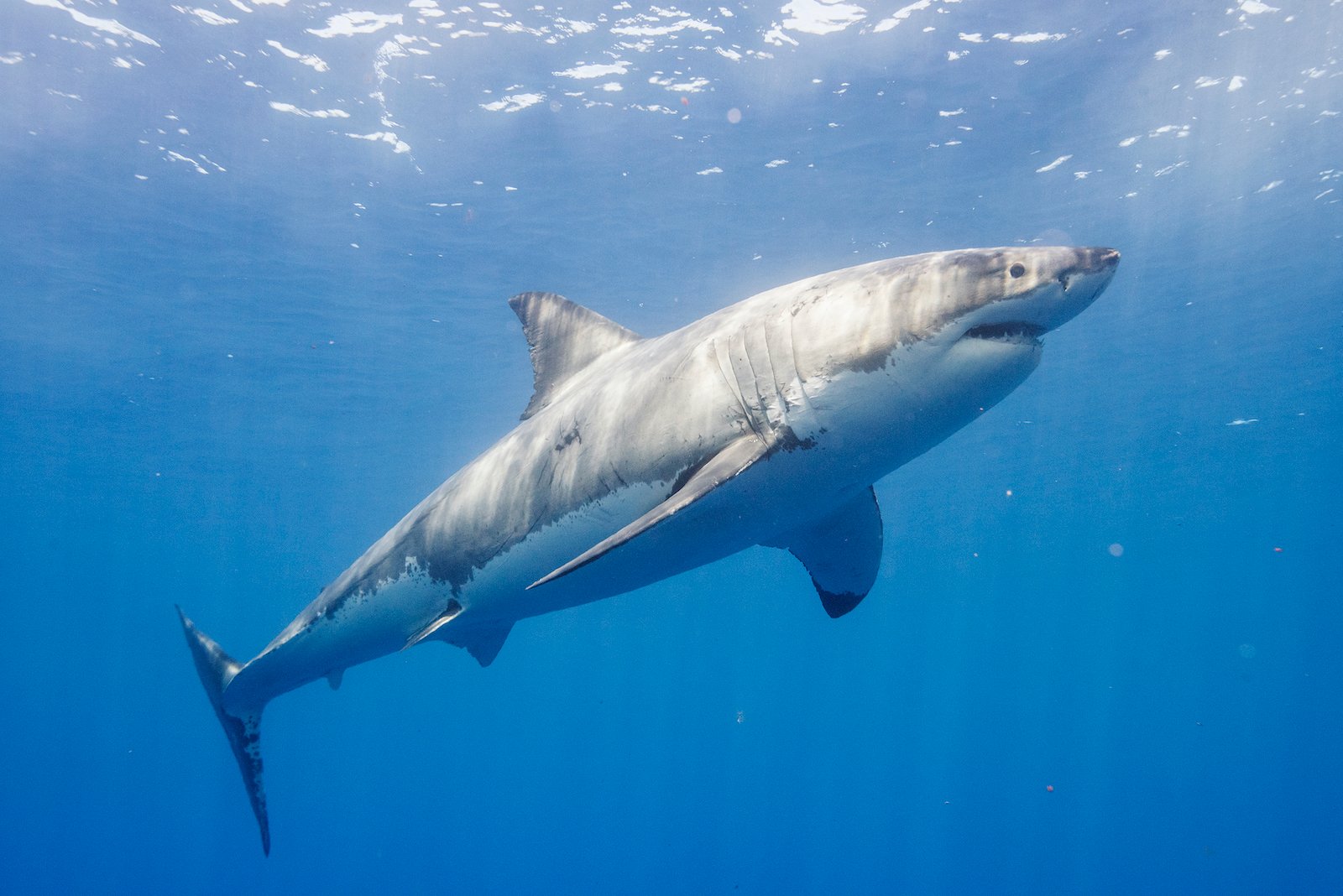
‘Réunion: Shark Attacks in Paradise’ Host Daniel Duane Reveals Why People Just Can’t Quit Endless Shark Content
The fascination with sharks is re-ignited every summer via Shark Week on discovery+ and re-runs of deep sea horror films like Jaws and The Shallows.
The shark often plays the villain role, stalking its prey in an unrelenting, blood-thirsty search for a human Happy Meal. And while putting the shark on a single-minded track of a cold-blooded killer often translates to box office dollars, the portrayal isn’t exactly accurate, according to surfer and journalist Daniel Duane.
Why are shark films so scary?
Duane, who hosts the podcast on The Binge, Réunion: Shark Attacks in Paradise, explored a rash of shark attacks on the small island, which are considered to be the deadliest string of attacks in years. He told Showbiz Cheat Sheet that villainous sharks make for good fantasy because humans are great at mitigating risk.

“I think we’re endlessly fascinated by sharks because our species spent so many hundreds of thousands of years getting eaten by large animals with sharp teeth. So it’s a primal terror, embedded super deep in our collective psyche,” he shared.
“We’ve eliminated that risk almost everywhere, now—except in the ocean, where our pathetic swimming ability and underwater vision make us shamefully vulnerable to anything that wants to take a nibble. So the ocean is really the last environment in our daily lives that presents even a puny possibility of our getting munched.”
Daniel Duane explores shark attacks on Reunion Island
He noted that movie sharks can’t compare to striking reality. “Of course, there’s Jaws—the original summer blockbuster!” he said. “And … Sharknado! And … well, on a more high-quality note, The Shallows. As for what kind of shark content I’d love to see out of Hollywood, I’m mostly inclined to say that the reality is so awesome that we could do away with all the silly hype and make the coolest shark movie of all time. As for exactly how, well … I’m working on it.”
The podcast is multi-layered, exploring the long-simmering tensions that boiled over on the island, which forced local surfers, politicians, and business owners into a proxy war with conservationists and ocean lovers worldwide.
Throughout the series, Duane speaks to locals, including witnesses to shark attacks on the island, and explores the government’s response to the attacks and climate issues that may have led to the increase of incidents on Réunion Island.
What does Daniel Duane wish people knew about sharks?
Like most surfers, Duane has had a “close encounter” with a shark. “I was once sitting on a surfboard in the Galapagos Island when a six-foot shark swam right under my bare feet,” he recalled. “But that shark didn’t show the slightest interest in me, so I can’t really say it was a close call.”
This is why Duane thinks the hype is overblown about the notion that shark attacks are personal.
“They’re not monolithic,” he remarked. “There are so many different species of shark! This causes confusion when people say things like ‘Sharks never hunt people; sharks only ever attack people when they accidentally mistake us for something they normally eat.'”
“This is absolutely true for certain species, like Great Whites; and arguably true for many other species; but bull sharks, like those on Reunion, are highly opportunistic,” he said. “They’ll eat anything that moves. So, even if they probably don’t actively stalk humans for the sake of eating human flesh, they also don’t actively not stalk humans. They just swim around looking for stuff to bite.”
Subscribers to “The Binge” can listen to all fourteen episodes of Réunion: Shark Attacks in Paradise all at once today.


